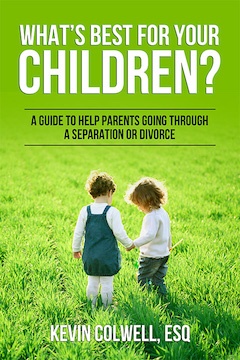Roughly 400,000 people in the U.S. receive alimony support, according to Forbes. Alimony, called spousal support or maintenance in New York, is awarded to the lower-earning spouse during the marriage through the divorce process, or after the divorce has been finalized. It is an important tool for the lower-earning spouse to maintain their standard of lifestyle, to help themselves go back to school to learn new workforce skills, or to ensure that they have enough to get by throughout the complicated and stressful divorce process. We help settle alimony disputes and concerns of both sides: the spouse that needs the support and the spouse that is being mandated to give the support.
Spousal Support
Under New York law, legally married couples must support each other throughout the marriage and while each is alive, which is known as spousal support. Spousal support will continue for the duration of the marriage, and there is no time limit to how long spousal support can last. It is common for spousal support to be temporary, and paid to one spouse throughout the divorce or separation process to help with living expenses such as food, housing, and other necessities. Because in many marriages one spouse is the primary breadwinner, while the other may be the primary homemaker or provide the majority of the child care, it is generally the case that the higher earning spouse provides this support to the other. Not all divorces call for spousal support, however. If it is decided by the court that both parties are stable financially, no spousal support will be awarded.
Maintenance Can be Durational or Life Time
Maintenance is alimony that is paid after the divorce. This financial support is either durational or non-durational. Durational maintenance is provided for a set period of time, designed to be long enough for the receiving spouse to financially get back on their feet. Non-durational maintenance, or lifetime maintenance, is paid until the death of either party. Non-durational maintenance is awarded when it is unlikely that the recipient spouse will be able to provide for themselves after the marriage, usually due to age or illness. When determining maintenance, New York courts look at the following criteria to make their objective decisions:
- Age of each spouse;
- Children in marriage;
- Health of each spouse;
- Capability to become self-sufficient of the recipient spouse;
- Length of the marriage;
- Incomes of each spouse;
- Other contributions made by recipient spouse;
- Personal property of each spouse;
- Domestic violence history; and
- Occupational sacrifices made for the marriage by recipient spouse.
Non-durational or durational maintenance will be terminated when the recipient spouse remarries or when either of the spouses passes away.
Call the Colwell Group Today to Speak with an Alimony Attorney
To find out more about alimony, we strongly recommend that you talk with a Saratoga alimony lawyer at our office in Ballston Spa, NY. Call the Colwell Law Group, LLC today at 518-880-9300 to set up a no risk consultation with one of our experienced attorneys as soon as you are able.

Get The Best Outcome For Your Children
Learn how to help your kids cope with your divorce with our complimentary guide for parents who are getting divorced or separated in New York.
Download The Free Guide Now


 (518) 462-4242
(518) 462-4242





 513 Broadway
513 Broadway